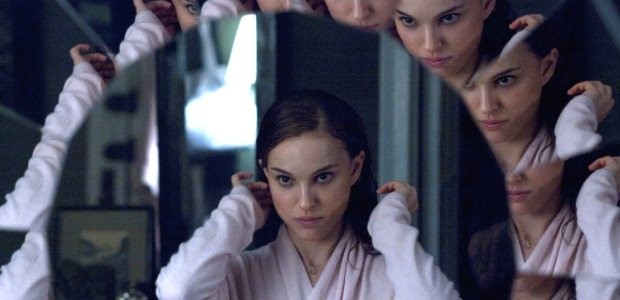Darren Aronofsky again explores his pet theme in his latest film Black Swan – obsession. And again proves his brilliance at exploring the dark depths of this singular emotion. Featuring a superlative performance from Natalie Portman, the movie fortifies Aronofsky’s mastery of the subject and his reputation as an actor’s director.
His subject here is Nina Sayers (Natalie Portman), a ballerina with a fierce need to excel at her craft. Her obsession pushes her to perfect her technique, but she lacks the passion that her stage character’s performance needs. Nina is chosen to portray the lead role of the Swan Queen, a performance that requires her to play the twin roles of the good White Swan and the evil Black Swan. While she is adept at the former, her Black Swan rendition is simply lacking. Under pressure from her mother, her director Thomas (Vincent Cassel) and rival dancer Lily (Mila Kunis), Nina spirals down a path of self-destruction that can only lead to one end.
From the opening sequence, Nina’s desire is made clear. There on, Aronofsky dissects Nina’s metamorphosis from the White Swan to the Black Swan, physically and emotionally. The camera often stays in Nina’s personal space, giving the audience a voyeuristic view of her. Natalie Portman, in the performance of her career, surrenders herself to Nina. Petite, timid and seeking only approval, Nina’s descent into madness becomes painful yet magnetic. Not realizing it while it happens and hating the painful process, she relishes the completion of her transformation. Leaving subtlety aside,Aronofsky shapes the movie with full-blown drama. Much like the director within the movie, he uses sex to push his character. Nina’s illusions become the audience’s, her eventual relish becomes ours.
Black Swan is sexually and physically explicit, yet without nudity or too much blood. The impact comes from the direct effect it has on Nina. Like The Wrestler, it is a personal story of one performer’s extreme dedication to, over and above all else, her craft. Like Requiem for a Dream, it explores a character’s powerful desire to fulfill an ambition. One remarkable scene has her madness animating lifeless objects. Aronofsky’s frequent use of reflections becomes a scrutiny of Nina rather than a thematic device.
Although predictable and clearly an amalgam of Aronofsky’s previous works, Black Swan is a powerful and visceral movie. It parallels the arc of the Swan Queen’s protagonist within the movie. By the time the movie’s terrific third act is over, it is easy to realize that the movie was headed for one and only one end. Yet, its brilliance is not in what the end is, but how it gets there.
Rating: 




